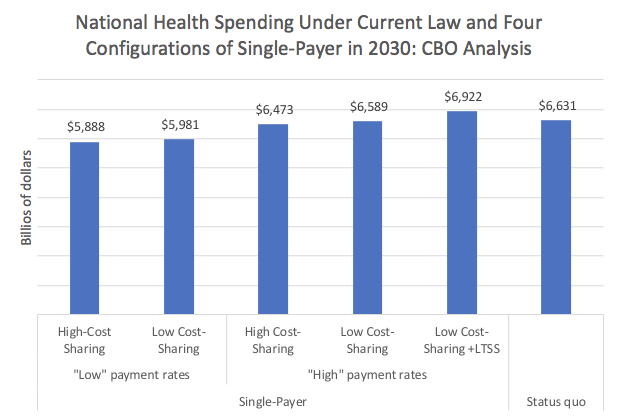
OK, so I'll now tweet out the articles I wrote this year, and research projects where I took the lead, in case any of it may be of interest to folks.
It feels odd because so much has changed over the course of this year — politically, medically, everything!
It feels odd because so much has changed over the course of this year — politically, medically, everything!
In January, we published a study suggesting that people with VA coverage (where drug copays are non-existent or minimal) forego medications because of cost much less often than those w/ other forms of health coverage.
Imho, drugs should be free for all.
healthaffairs.org/doi/abs/10.137…
Imho, drugs should be free for all.
healthaffairs.org/doi/abs/10.137…
In February, a brief editorial for BMJ made the case that "illness should not inflict financial ruin".
Medicaid expansion matters, but it is not enough — transformative financing reform is essential.
bmj.com/content/368/bm…
Medicaid expansion matters, but it is not enough — transformative financing reform is essential.
bmj.com/content/368/bm…
In March, I wrote for the HA Blog arguing that *now* was the time to push for single-payer.
"The 2020 elections may or may not cause a political earthquake on par with 1964, but it hardly follows from this that we ought to lower our sights."
healthaffairs.org/do/10.1377/hbl…
"The 2020 elections may or may not cause a political earthquake on par with 1964, but it hardly follows from this that we ought to lower our sights."
healthaffairs.org/do/10.1377/hbl…
Then the pandemic slammed us. I wrote a piece in March for the Guardian arguing that Trump had "elevated self-interest above life" in his response to the pandemic:
theguardian.com/commentisfree/…
theguardian.com/commentisfree/…
Another piece in the Guardian later that month argued that our disastrous response to the COVID-19 pandemic was demonstrative of the intrinsic failings of our healthcare system, and neoliberalism more broadly:
theguardian.com/commentisfree/…
theguardian.com/commentisfree/…
In April, on behalf of PNHP, I published "Eight Steps in the Fight Against COVID-19", calling for healthcare reform, boosted public health financing, protection of incarcerated patients, international health justice in response to the pandemic, & more:
bostonreview.net/science-nature…
bostonreview.net/science-nature…
In a review article in June, we explored how America's healthcare financing weaknesses exacerbated the pandemic — and also outlined potential solutions.
Ends with a Virchow quote by necessity:
journals.sagepub.com/doi/full/10.11…
Ends with a Virchow quote by necessity:
journals.sagepub.com/doi/full/10.11…

In a research letter published in June, we estimated that some 18 million Americans were uninsured or underinsured who are also at high-risk of severe COVID-19 because of age or chronic disease factors. link.springer.com/article/10.100…
In July, we observed that more Americans on record reported being out sick from work in mid-April as wave 1 peaked — disproportionately immigrant workers and those with less education.
jamanetwork.com/journals/jamai…
jamanetwork.com/journals/jamai…
Also in July, I had an article in @thebafflermag giving some first person perspective on the first wave of the pandemic in our hospital, exploring the history of hospital financing, and making the case for greater equity and justice in healthcare supply:
thebaffler.com/salvos/bill-of…
thebaffler.com/salvos/bill-of…
A short piece in @DissentMag made the case for "bringing back health planning." Planning is not a four letter word, certainly when it comes to healthcare. We need to prepare for the next pandemic.
dissentmagazine.org/article/bring-…
dissentmagazine.org/article/bring-…
As the Black Lives Matter protests peaked, we wrote a piece in the @TheLancet calling out US law enforcement's crowd control tactics—specifically the reckless use of chemical irritants and "kinetic energy projectiles" that took the eyes of many protestors
thelancet.com/journals/lance…
thelancet.com/journals/lance…
As the school opening debate gained stem, we published a research letter tabulating the number of teachers and adults living with school-age children with risk factors for severe COVID-19. I think we struck the right balance in our discussion.
acpjournals.org/doi/10.7326/M2…
acpjournals.org/doi/10.7326/M2…

Another short research report described disparities among those home sick with what they perceived as coronavirus symptoms — and the high rates of uninsurance and social precarity in this population
link.springer.com/article/10.100…
link.springer.com/article/10.100…
In another study, as debate over the $600 CARES Act unemployment insurance benefit hit a fevered pitch, we examined "health and social precarity among Americans receiving unemployment during the COVID-19 outbreak" — and concluded with a call for action.
link.springer.com/article/10.100…
link.springer.com/article/10.100…

I've been trying to draw attention to the ways our healthcare financing systems leaves patients with chronic obstructive pulmonary disease in the lurch; our study examining rural disparities in healthcare access for those with COPD adds to this literature
onlinelibrary.wiley.com/doi/10.1111/jr…
onlinelibrary.wiley.com/doi/10.1111/jr…
Shortly before the election, we calculated the number of Americans who likely lost their lives because of health coverage losses that accrued over the course of the Trump administration
healthaffairs.org/do/10.1377/hbl…
healthaffairs.org/do/10.1377/hbl…
Then, for the @BostonReview, I examined past and present racial health inequities in respiratory health — and argued that we needed to confront "the structural economic inequities that distribute, among other things, the means of good pulmonary health."
bostonreview.net/science-nature…
bostonreview.net/science-nature…
And finally, we published a study describing disabilities and health needs among those who depend on mail order pharmacy delivery — findings that support the need for an adequately funded postal system.
jamanetwork.com/journals/jamai…
jamanetwork.com/journals/jamai…
Now, onwards to what I hope will be a happier and healthier 2021!
• • •
Missing some Tweet in this thread? You can try to
force a refresh




